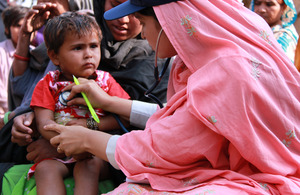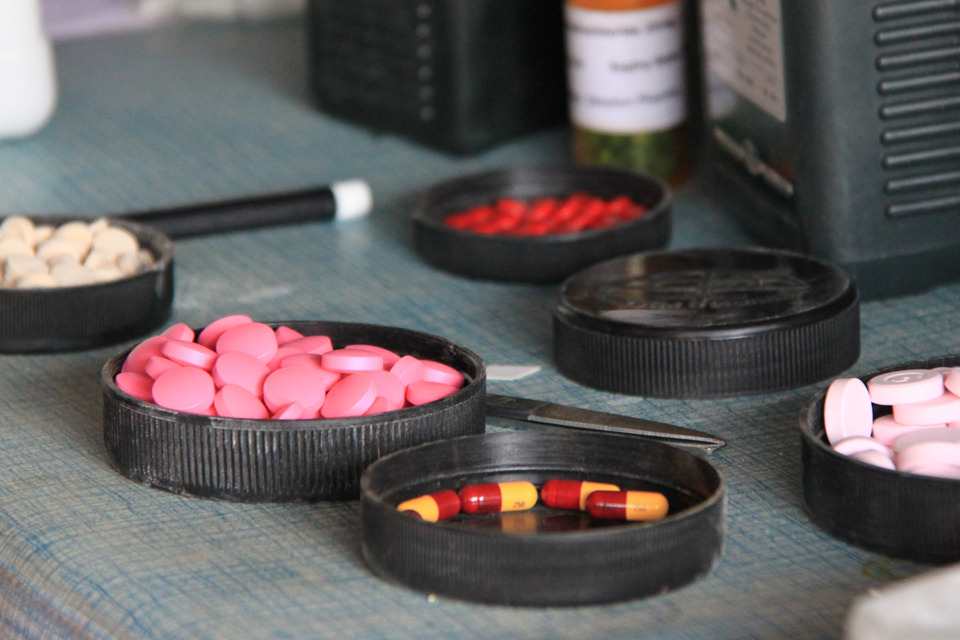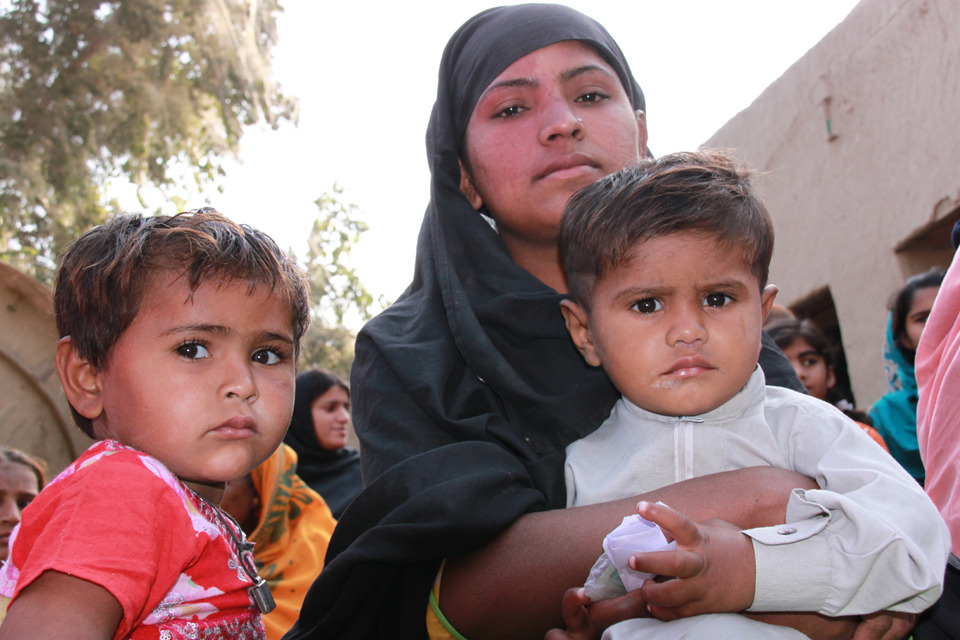Pakistan floods six months on: tackling the threat of disease
How DFID funded medical help is reaching flood survivors in Sindh province

A female doctor with the International Medical Corps examines a young boy at a mobile health clinic in the village of Goza, near Dadu, in Pakistan's Sindh province. Picture: Russell Watkins/DFID
Munawar is 25 years old and has been married to her husband Rashid for four years. They have 2 daughters and a son, and live in Sindh province, Pakistan.
Sindh was badly affected by the devastating floods in August 2010 and, 6 months on, some areas of the province are still underwater.
Thankfully Munawar and her family survived the flooding, but they’ve been struggling with fevers, flu and chest infections ever since. Today they’re getting treatment from a mobile health clinic which is visiting their village.
Fighting off disease
The clinics, run by International Medical Corps and funded by UKaid from the Department for International Development, are providing vital emergency health care, hygiene services and psychosocial support to thousands of families like Munawar’s. The medical teams pay special attention to vulnerable groups like women and children who often find it difficult to travel to safe places where they can get help.
As Munawar talks about the last few months, 2 of her children sit quietly on her lap. A female doctor is examining them, looking at their skin, listening to their chests and writing prescriptions.
“Everyone was talking about the water coming,” says Munawar. “We found out in the morning that the flood had hit us. It came suddenly and destroyed everything and washed it away. With the Grace of Allah we took our children and left.”
“It was really difficult trying to travel with the children. They all got ill and suffered from flu, vomiting, diarrhoea, coughs, and chest infections. My husband also got a fever.”
Reaching those in need
Behind her, more than 50 women and children gather around a female nurse. Prescriptions are written and tablets, syrups and other medicines are collected from an ambulance outside which doubles as a mobile dispensary.

Patients are seen by a doctor and written a prescription. Then they collect their medicine from a mobile dispensary.
Each mobile team consists of a doctor, a female nurse, a dispenser and a health educator. Like Munawar’s children, many flood survivors are suffering from chest infections and the majority of the medical team’s time is spent treating acute respiratory problems. The contaminated water also leads to skin diseases, foot infections and diarrhea.
“I was worried about my children and about myself,” says Munawar. “But I’m relieved that they’ve received treatment today”.
With UKaid funding, International Medical Corps is providing 40 mobile health teams as well as repairing 30 basic health units. And healthcare staff are receiving training so that they can provide better treatment to flood affected communities.
Twenty-seven-year-old Dr Natasha, who treated Munawar and her children, will aim to see between 75 and 100 patients today. And tomorrow the clinic will move to a new town and treat hundreds more.
Returning home

Munawar with two of her children at an International Medical Corps clinic in Sindh province. Picture: Vicki Francis/DFID
“We are thankful that, after all the miseries, we are back in our village,” says Munawar.
“Our houses are damaged and we need to repair them. But as long as our home can be fixed and we can feed our children and get them medicines, that is enough.”
Facts and stats
Through DFID funding, International Medical Corps’ work hopes to help 720,000 people in Punjab and Sindh provinces.
International Medical Corps is providing hygiene training for 190,000 people and distributing 28,000 family hygiene kits, 112,000 water containers and 120 latrines.
The mobile health teams also operate as a disease ‘early-warning’ system; by getting out into the communities, they can spot the early signs of cholera and other water-borne diseases associated with large amounts of standing water and limited sanitation.